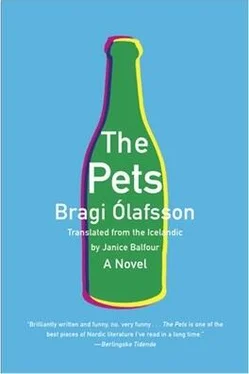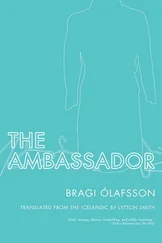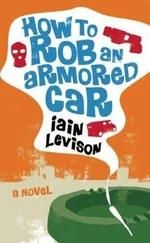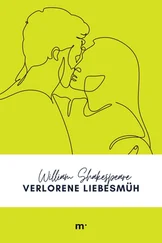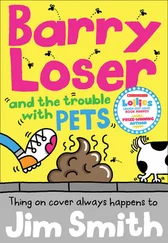Bragi Ólafsson - Pets
Здесь есть возможность читать онлайн «Bragi Ólafsson - Pets» весь текст электронной книги совершенно бесплатно (целиком полную версию без сокращений). В некоторых случаях можно слушать аудио, скачать через торрент в формате fb2 и присутствует краткое содержание. Год выпуска: 2008, Издательство: Open Letter, Жанр: Современная проза, на английском языке. Описание произведения, (предисловие) а так же отзывы посетителей доступны на портале библиотеки ЛибКат.
- Название:Pets
- Автор:
- Издательство:Open Letter
- Жанр:
- Год:2008
- ISBN:нет данных
- Рейтинг книги:5 / 5. Голосов: 1
-
Избранное:Добавить в избранное
- Отзывы:
-
Ваша оценка:
- 100
- 1
- 2
- 3
- 4
- 5
Pets: краткое содержание, описание и аннотация
Предлагаем к чтению аннотацию, описание, краткое содержание или предисловие (зависит от того, что написал сам автор книги «Pets»). Если вы не нашли необходимую информацию о книге — напишите в комментариях, мы постараемся отыскать её.
Pets — читать онлайн бесплатно полную книгу (весь текст) целиком
Ниже представлен текст книги, разбитый по страницам. Система сохранения места последней прочитанной страницы, позволяет с удобством читать онлайн бесплатно книгу «Pets», без необходимости каждый раз заново искать на чём Вы остановились. Поставьте закладку, и сможете в любой момент перейти на страницу, на которой закончили чтение.
Интервал:
Закладка:
“Well it’s not a speedboat,” Havard answers, as if he thinks that Armann is trying to dispute the matter.
“No, it’s not a speedboat, you’re right about that.”
“And it’s not a submarine,” Havard says with a laugh.
“No, no, it’s a whaler,” Armann answers. “I can see that now, it’s a whaler.”
Havard’s theft of these irreplaceable objects made the last three weeks that I spent at Brooke Road after his departure completely unbearable. I had thought about making up some story about a burglary, but I decided against it at the last moment and told Osk the truth when she returned from her trip. Later on, I told Orn over the phone that my friend — the same person who had been responsible for the deaths of the iguana and the rodents — had vanished one day, without me being able to do anything about it, and had taken the valuables with him. Osk didn’t take the news particularly well, as was to be expected, but Orn’s reaction, when I called him in San José in Costa Rica, was one of surprise rather than anger. I couldn’t believe how well he took the news. He didn’t insist in any way that I find my friend; instead he advised me to stay clear of this Havard for as long as I could. The less we knew about this unfortunate character the better. He refused to consider my proposal of pro forma compensation for the objects, and when we met again two years later at my father’s house he offered me the use of his flat whenever I felt like it; his daughter no longer lived there and he only used it now and again. What I appreciated most of all in Orn’s generosity was the fact that he asked me not to mention the incident to my father; he said that we should forget about it, and so should Osk of course.
I understand from what I have just heard that Havard has come to give me the ship, and I begin to wonder whether the book might be buried in the plastic bag too. All at once I feel it is worthwhile huddling here under the bed — it’s as if this pathetic confinement has suddenly acquired a purpose. But on the other hand, I can’t be sure that Havard will leave the ship behind if I don’t make an appearance; I am quite certain that he wants to hand over the precious object to me in person.
“Some woman, to whom I spoke today in an antique shop, was going to give me two hundred and fifty thousand kronur for it,” Havard says. “Isn’t it right to say antique shop ? Or what do you think? It’s an antique shop , isn’t it?”
“I thought you were going to give it to Emil,” Armann answers. He doesn’t seem very interested in either the ship or the term antique shop .
“That is just what I am going to do. You don’t really think I would give it away for two hundred and fifty thousand, do you? Oh, no, sir, that ship is not for sale. I borrowed it from Emil’s relative while I was in England a few years ago and now I have come to return it. I have this book too: Moby-Dick , the original edition. 1851.”
The plastic bag is crinkled again, and despite my joy that the book should also come with the ship, I think it is almost unforgivable that he dragged it around in a plastic bag — I can just imagine how worn and tattered the bag is.
“Now that is something!” Armann says and asks to see the book.
“You must be careful with it,” Havard warns him. I find it difficult not to laugh. This advice, which actually sounds like it is meant for a child, is quite appropriate when one remembers how roughly Armann treated his paperback on the plane earlier today. I think about the woman who sat on the other side of Armann; how she turned the pages of the magazine as if it was something of extreme value.
“And you are going to give it to Emil as well?” Armann asks. He seems to be surprised, or even amazed. “The original edition of Moby-Dick ?”
“I’m just returning it,” Havard corrects him. “I borrowed it from one of his relatives and just thought it was time to return it. I have had it for at least five years now.”
“Maybe five years isn’t a very long time for such an old book,” Armann says and laughs.
“Maybe not for such a book,” Havard answers, “but it is for me. At least these five years have passed rather slowly for me.”
If I’m not mistaken, there is remorse, or a touch of remorse, in his voice.
“But at least you have had time to read it, I presume,” Armann says cheerfully, and I imagine that he is handling the book.
“Me?” Havard says in a tone that makes it clear that he is not the kind of man to read such a book. “Armann, why don’t we put something more cheerful on the hi-fi?”
I was truly amazed at how long Havard had tolerated listening to the Deutsche Grammophon CD, but on the other hand I was looking forward to listening to the works of Alban Berg, which is also on the CD. That type of music would certainly not be very acceptable to his sensitive ears. A series of short pieces for cello and piano by Anton Webern is playing now, and I am sure Armann is enjoying them. So he answers Havard first by saying that he may change the music, he isn’t going to interfere, but he adds that he thinks it is a particularly beautiful work which he hasn’t heard for a long time.
“But you like Elvis, don’t you?” Havard asks. He seems determined to liven up the conversation and the music.
“I can’t really say I do,” Armann answers, obviously still engrossed in the book.
“We’ll just have it on low,” Havard says and cuts off Anton Webern. It’s clear that he has the Elvis CD nearby, as only a few seconds pass before the first track begins. It is “Heartbreak Hotel.” Havard does as he promised; he turns the volume down but then suddenly adds:
“Here, I am going to play ‘Hound Dog,’ you know that song, don’t you?”
Armann doesn’t bother to answer, and I can’t help thinking that Havard’s interest in the song about the hunting dog must have been sparked by his remembering the premature death of the rodents, Moby and Dick. He stops “Heartbreak Hotel” and I have already started to hum “Hound Dog” in my mind. The volume is turned up as soon as the song begins and Armann says something. I can’t make it out, but it sounds as though he isn’t particularly pleased and feels that things could be better right now.
10
One aspect of Havard’s character I got to know while we stayed on Brook Road was his fear of the dark. I quickly noticed how uncomfortable he felt when he was alone after dark, and I got him to admit this weakness one evening, when he told me for the second time that he always thought he could hear someone behind him whenever he went upstairs. During the day he was often noisy, especially when he had been drinking — which was usually the case — but in the evening he was calmer and yet sometimes slightly apprehensive as he walked around the flat. I teased him by saying that he had read too many English ghost stories, but he gave me the impression that there was something else — something more profound — that was bothering him. I thought there had maybe been some incident in his childhood, which I had begun to imagine as rather bleak and joyless; I could just see Havard as a child, bent and hollow chested, surrounded by his grandmother’s old furniture and belongings while his mother and father were drinking next door.
Havard wasn’t very fond of the cat on Brooke Road, especially after it jumped on him on the sofa one evening while we were watching television. He was so startled that he dropped a glowing cigarette between his legs — it made an ugly mark on the sofa — and knocked over a mug full of beer which he’d placed on the floor. But he liked the other animals, especially Dick the rabbit and Moby the white guinea pig, and their acquaintance ended in a rather sad way. However, he never ceased to grumble about the names Orn had given them, saying that he couldn’t see the humor in giving an innocent guinea pig a whale’s name. Besides, Dick was by far the most ridiculous name he had ever heard for a female rabbit. He made no complaints about the cat’s name though and no doubt thought it was appropriate.
Читать дальшеИнтервал:
Закладка:
Похожие книги на «Pets»
Представляем Вашему вниманию похожие книги на «Pets» списком для выбора. Мы отобрали схожую по названию и смыслу литературу в надежде предоставить читателям больше вариантов отыскать новые, интересные, ещё непрочитанные произведения.
Обсуждение, отзывы о книге «Pets» и просто собственные мнения читателей. Оставьте ваши комментарии, напишите, что Вы думаете о произведении, его смысле или главных героях. Укажите что конкретно понравилось, а что нет, и почему Вы так считаете.
